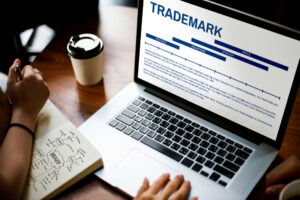10 Essential Documents for Company Tax Audit (Get Ready Before It’s Too Late!)
As a business owner, you understand the importance of complying with tax regulations and avoiding any potential penalties. One crucial aspect of tax compliance is preparing for a tax audit. In this article, we will outline the 10 essential documents you need to have in order to ensure a smooth tax audit process for your company.
Why is Tax Audit Preparation Important?
Tax audits can be a daunting experience, especially if you’re not prepared. The consequences of failing to comply with tax regulations can be severe, including fines, penalties, and even legal action. By having the necessary documents in order, you can minimize the risk of errors and ensure that your company is in compliance with all tax laws and regulations. In Indonesia, the tax authority, known as the Directorate General of Taxes (DGT), has the power to conduct tax audits on companies to ensure compliance with tax laws and regulations. The DGT may conduct a tax audit at any time, and it’s essential to be prepared to avoid any potential penalties.
The 10 Essential Documents for Tax Audit
Here are the 10 essential documents you need to have for a tax audit:
1. Financial Statements: Your company’s financial statements, including balance sheets, income statements, and cash flow statements, are crucial for tax audit purposes. These statements provide a snapshot of your company’s financial position and performance, and are used to calculate tax liabilities.
2. Tax Returns: Ensure that all tax returns, including corporate tax returns, VAT returns, and withholding tax returns, are complete and accurate. Tax returns are used to report your company’s tax liabilities and claim any tax credits or deductions.
3. Accounting Records: Maintain accurate and detailed accounting records, including general ledgers, journals, and subsidiary ledgers. These records provide a detailed record of your company’s financial transactions and are used to support tax returns and financial statements.
4. Invoices and Receipts: Keep all invoices and receipts related to business transactions, including sales, purchases, and expenses. These documents provide evidence of your company’s business activities and are used to support tax returns and financial statements.
5. Bank Statements: Ensure that all bank statements, including checking and savings accounts, are complete and accurate. Bank statements provide a record of your company’s cash transactions and are used to support tax returns and financial statements.
6. Payroll Records: Maintain accurate payroll records, including employee salaries, benefits, and tax deductions. Payroll records are used to calculate tax liabilities and ensure compliance with labor laws and regulations.
7. Asset Records: Keep records of all company assets, including property, equipment, and vehicles. Asset records are used to calculate depreciation and amortization, and are used to support tax returns and financial statements.
8. Liability Records: Maintain records of all company liabilities, including loans, debts, and credit card statements. Liability records are used to calculate interest expenses and are used to support tax returns and financial statements.
9. Contractual Agreements: Keep copies of all contractual agreements, including leases, rental agreements, and service contracts. Contractual agreements provide evidence of your company’s business activities and are used to support tax returns and financial statements.
10. Tax-Related Documents: Ensure that all tax-related documents, including tax certificates, tax exemptions, and tax credits, are complete and accurate. Tax-related documents provide evidence of your company’s tax compliance and are used to support tax returns and financial statements.
Best Practices for Tax Audit Preparation
To ensure a smooth tax audit process, it’s essential to follow best practices for tax audit preparation. Here are some tips:
– Maintain accurate and detailed accounting records, including general ledgers, journals, and subsidiary ledgers.
– Ensure that all tax returns, including corporate tax returns, VAT returns, and withholding tax returns, are complete and accurate.
– Keep all invoices and receipts related to business transactions, including sales, purchases, and expenses.
– Ensure that all bank statements, including checking and savings accounts, are complete and accurate.
– Maintain accurate payroll records, including employee salaries, benefits, and tax deductions.
– Keep records of all company assets, including property, equipment, and vehicles.
– Maintain records of all company liabilities, including loans, debts, and credit card statements.
– Keep copies of all contractual agreements, including leases, rental agreements, and service contracts.
– Ensure that all tax-related documents, including tax certificates, tax exemptions, and tax credits, are complete and accurate.
Get Ready for Tax Audit with Documenta
Don’t wait until it’s too late! Prepare your company for tax audit by ensuring that all necessary documents are in order. At Documenta, we can help you with tax audit preparation and ensure that your company is in compliance with all tax laws and regulations.
Contact Us Today!
Call us now at +62 851-8322-7997 (DISA) or email us at mailto:halo@documenta.id to learn more about how we can help you with tax audit preparation. Our team of experts is ready to assist you in ensuring that your company is tax-compliant and audit-ready.
Still confused about Tax Audit?
Click the tombol on the right to Ask the Documenta Team











